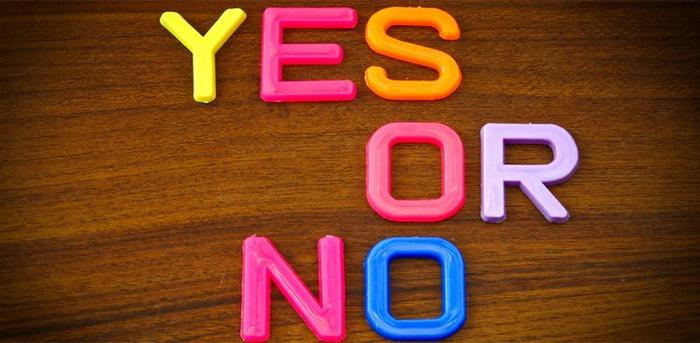
Almost every waking moment, you’re making a decision. Do you want to eat eggs or toast? Wear the blazer or the cardigan? Take the stairs or the escalator?
And that’s just the easy stuff.
While each decision by itself may sound simple, the seemingly endless stream of decisions—and the pressure to make the “right” choice for each one—can really deplete you of time, energy, motivation, and even happiness.
A recent New York Times article thrust this daily struggle into the spotlight (NPR chimed in, too): On any given day, we have a finite amount of mental energy and willpower to make choices. And by the end of an especially decision- or action-packed day (or week, or month), even choosing what to eat for dinner can seem like a struggle.
So how are we to save our decision-making energy for the big stuff, like choosing a job or planning for the future?
Changing the amount of daily choices in your life isn’t necessarily an option—and in most cases, you do want to be able to pick! But changing the way the way you think about your choices, both big and small, can make them less draining. Whether you tend to get tuckered out by every little decision, or you’re facing a larger life dilemma that has zapped your energy to pick between chicken and fish, here’s how to figure out what matters, get the little choices out of the way, and turn from depleted to decisive.
Pinpoint the Problem
Start by taking stock of the decisions on your plate. What choices wear you out (or have worn you out)? You might start with the big issues that you wake up and fall asleep thinking about: Maybe you’re pondering a career switch or wading through a family dilemma. Then track to your day-to-day decisions: what to say in an email, the order in which you tackle your to-do list, which friends to call.
For each of those choices, ask yourself what you fear will happen if you make the “wrong” decision. Is it about your aspirations, your relationships, or your reputation? Bringing your fears and fatigue to light, and naming them for what they are, not only helps you feel less overwhelmed, but will give you a better hold on what’s most important to you—and that, in turn, will aid you in future decision-making.
Kick Analysis Paralysis to the Curb
For any given choice, weighing of pros and cons can feel like the way to arrive at the “best” answer. But really, try to save this process for use only on the big stuff. Look at it this way: Sometimes the actual “wrong” choice is putting off a decision or wasting time overthinking it.
If you’re finding yourself stuck, try this decision-making technique: Pick one aspect of the choice that matters to you, and let the rest fall by the wayside. For example, when choosing between two projects to take on at work, find the thing that’s most valuable to you and let it drive your decision. Is teambuilding your priority? Pick the project with the best people. Learning new material? Go for the project that’s less familiar to you. Accepting that there’s not one choice that will satisfy all your criteria will force you to pinpoint and focus on what’s most important.
Get Comfortable With Quick Decisions
Here’s another technique to improve your decision-making. Try making quick decisions on smaller choices that don’t matter as much: which toothpaste to buy, what to order for lunch, or the shirt you’ll wear to work. If you know you’re lingering too long on a decision, tell yourself "three, two, one—done!”
Or, if you have a decision to make that really, really doesn’t matter, and have a co-worker, friend, or family member who’s super decisive, try letting her choose for you. Voilà—happy friends, and more decision-making energy for you.
Live With Regret (and Let it Go)
One fear of making the "wrong” decision is that we'll have to live with regret. And sure, sometimes you'll wish you had chosen something else—but especially when it comes to the small stuff, you’ll also realize that regret is fleeting. That skirt you bought, decided you don’t like, but can’t return? You could mope over it, but chances are you’ll regret the time wasted beating yourself up more than the lost cash.
If you regret something you’ve made a quick decision on, tell yourself it’s OK. Feel the regret, take a breath, release it, and remind yourself that the time spent on making a decision is taking time away from more worthy endeavors.
Put it in Perspective
When a particular choice feels truly overwhelming, remember that for each choice you make, you’ve got tons more to go and your decision doesn’t have to be forever. One “wrong” choice does not discredit all your good judgment in the past or ruin future possibilities. And remember, if we all made perfect choices all the time, we’d never learn anything!
At a conference I recently attended, some advice from Marissa Mayer freed me from a lot of my own decision-making anxiety. When weighing job offers brought her to tears, a friend reminded her that it’s less about the decision and more about how you choose to follow that decision up. Her friend said, “You know, Marissa, you’re putting a lot of pressure on yourself to pick the right choice, and I’ve gotta be honest: That’s not what I see here. I see a bunch of good choices, and there’s the one that you pick and make great.”
So when you feel torn by daily decisions, let the spirit of “pick one and make it great” apply. It’s not the little choices that add up to make a great life and a great you—it’s the courage and confidence to see your decisions through, and the wisdom you gain from making them.